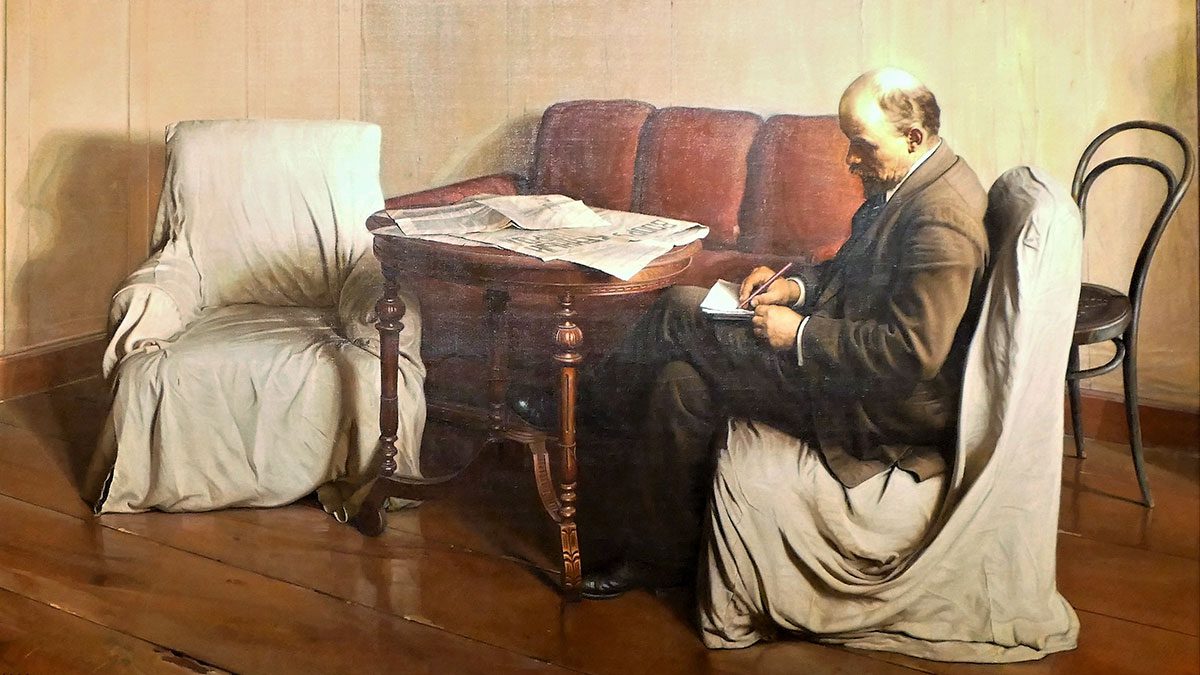From the Spring 1976 issue of the Western Socialist
This is one of a series of articles that appeared in The Lance, published by the Student Media, University of Windsor in Windsor, Ont., Canada.
It seems that for the past while I have been criticized for not backing up some of my claims with references to the works of Marx, Engels and Lenin. This week, however, I plan to show how Lenin directly distorted Marxian scientific socialism.
Marx and Engels made it quite clear that “No social order ever disappears before all the productive forces for which there is room within it have developed; and new higher relations of production never appear before the material conditions of their existence have matured in the womb of the old society.” (Preface to Critque of Political Economy).
Compare this to the Leninist theory that socialism can be built in backward countries such as the Russia of 1917. Engels himself wrote in 1893 that France (already an industrialized country) had not “reached the point which would have made the transition to socialism possible.” (Preface to Italian edition of the Communist Manifesto). So how could backward Russia which was just developing capitalism proceed to socialism?
Lenin, later, had to admit that “The development of the productive forces of Russia has not attained the level that makes socialism possible. . . . They keep harping on this incontrovertible proposition” . . . (Our Revolution). Thus he was to look to countries such as India and China to assure the victory of socialism. Quite a contradiction. If Russia was too backward for socialism, then how were India and China, which were even more backward, to remedy the situation?
In order for Lenin’s followers to claim that socialism could be built in one country, and a backward country at that, then they would have to reject the total concept of historical materialism, one of the cornerstones of Marxian thought.
To Marx, the socialist revolution could only be “the self-conscious, independent movement of the immense majority in the interest of the immense majority.” — (Communist Manifesto). And what did Lenin say? He stated that the workers can only be led by a group of skilled professional revolutionaries. Why? Because “the working class exclusively by its own efforts is able to develop only trade-union consciousness . . . ” — (What is to be Done?) Marx knew that only a politically conscious majority of workers can build socialism — “So that the masses may understand what is to be done, long and persistent work is required.” — (Class Struggles in France). Whereas Lenin followed a different view — “If socialism can only be realised when the intellectual development of all the people permits it, then we shall not see socialism for at least five hundred years.” — (reported by John Reed).
On question of the role of the State to Marx: the “destruction of the State machine” (Eighteenth Brumaire) meant the “destruction of the bureaucratic and military machine” (letter to Kugelmann). The State is “an evil inherited by the proletariat” and “whose worse sides the proletariat . . . will have at the earliest possible moment to lop off . . .” (Civil War in France).
This is a far cry from Lenin’s distortion when he wrote that “Marx’s idea is that the working class must breakup, smash, the ‘ready-made state machinery’ and not confine itself to laying hold of it.” — (State and Revolution). Now which shall it be — lop off the military and bureaucracy or smash the state altogether?
And what of the much talked about “dictatorship of the proletariat”?
This was elaborated on by Engels who did not see the dictatorship as a form of government, but rather as the social structure of state power. Obviously Lenin did not share this view.
In fact, Engels saw the democratic republic as “the specific form of the dictatorship of the proletariat” (Critique of the draft of the Erfurt program) . Whereas to Lenin the “Democratic Republic comes nearest the dictatorship of the proletariat” — (State and Revolution).
Marx and Engels saw the dictatorship as being based on universal suffrage, democratic from top to bottom. Quite different from Lenin’s view “that Soviet Socialist Democracy is in no way inconsistent with the rule and dictatorship of one person” — (Economic Construction).
Lenin, to enforce his theories, claimed that Marx made a distinction between socialism and communism when in fact neither Marx nor Engels ever made such a distinction. Marx and Engels made it clear that the state was only necessary in a class society of inequality. What happened to Russia? The state is not withering away. In fact, it is stronger than ever.
This article is not long enough to go into all the areas of Leninist distortion. We must realise that the distortions made by Lenin inevitably resulted in Stalinist terror. Terror and violence are not recognized by socialists.
Len Wallace



